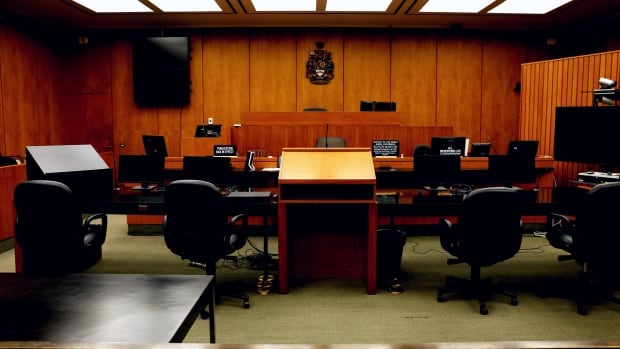
Warning: This story contains graphic content.
A man originally sentenced to house arrest after admitting to dismembering the body of a Beaumont, Alta., woman has been handed a new sentence that will see him incarcerated.
The Alberta Court of Appeal issued a decision Thursday in the case against Joseph Donald Skelly, overturning a previous sentence that would have seen the retired butcher serve his time at home.
Skelly pleaded guilty earlier this year to one count of interfering with the remains of Treasa Oberly, his son’s common-law partner, following the 40-year-old woman’s death in July 2023.
On March 7, Court of King’s Bench Justice John Little handed Skelly a two-year conditional sentence. It included 12 months of house arrest with a curfew, followed by 12 months of probation and 200 hours of community service:
The Alberta Crown Prosecution Service, which had argued that Skelly should serve 3½ years in prison, filed an appeal of Little’s decision, describing the sentence as unfit.
In a Court of Appeal decision Thursday, a three-judge panel agreed with the Crown that the original sentence was inadequate and “demonstrably unfit.”
Skelly, from Beaumont, just south of Edmonton, has now been sentenced to three years. He was granted about eight months of credit for time already served.
“The sentence imposed was demonstrably unfit because it was disproportionately lenient given the respondent’s culpability and the harm caused by the offence,” the judges wrote in Thursday’s decision.
Oberly was last seen alive on the morning of July 14, 2023. An RCMP investigation into Joseph Skelly began soon after.
Court heard that Skelly agreed to burn and dismember her body the following day, in the hopes it would prevent Oberly’s remains from being identified.
Skelly’s son, Kenneth Skelly, who was in a common-law relationship with Oberly, has been charged with second-degree murder and is set to face trial.
According to an agreed statement of facts in his own case, Joseph Skelly was intoxicated when Oberly’s remains were brought to his home in the back of a pickup truck and placed in his garage.
The elder Skelly initially told police investigating Oberly’s disappearance that she had likely left the country.
But after police seized his phone, he confessed to knowing where Oberly’s remains were buried and led the police to her body.
Several days later, he confessed to dismembering, burning and then disposing of Oberly’s remains in a shallow grave near Whitecourt, Alta., 180 kilometres northwest of Edmonton.
Skelly, who worked in grocery store meat departments around Edmonton, was 69 at the time of the offence. He had no previous criminal record.
Skelly obstructed justice, court says
The appeal court found that Little erred in his sentencing by focusing too much on the offender.
Skelly had obstructed the criminal investigation, misled police, prevented investigators from determining Oberly’s cause of death and traumatized the victim’s loved ones, the judges said.
Other aggravating factors included the “appalling degree” to which Oberly’s body was desecrated and Skelly’s “overt attempt” to obstruct justice, they said.
“While some ‘focus on the accused’ was appropriate, it was an error to say that the only objective in sentencing was ‘how society treats Mr. Skelly,'” their decision said.
“The sentence also had to reflect the impact of the crime on the victims, and denunciation in the sense previously outlined of what the respondent did.
“It also had to deter other like-situated offenders from committing similar crimes. It had to reflect the respondent’s moral responsibility for what he did.”
The maximum sentence for interfering with human remains is five years of incarceration. Before the initial sentencing, Skelly’s defence lawyer had argued for a conditional sentence of two years less a day, followed by probation.
Skelly’s probation has now been cancelled. He must surrender into custody by Oct. 28 to serve out the balance of his sentence.